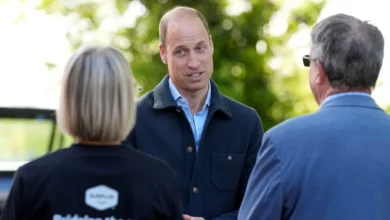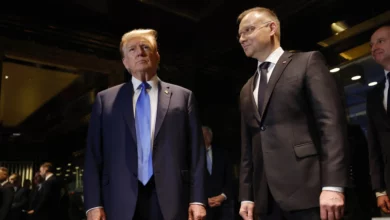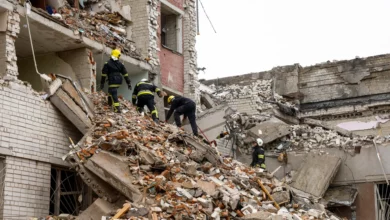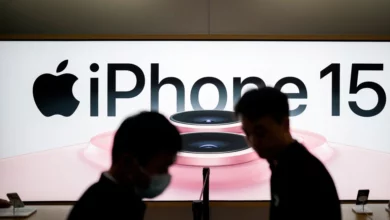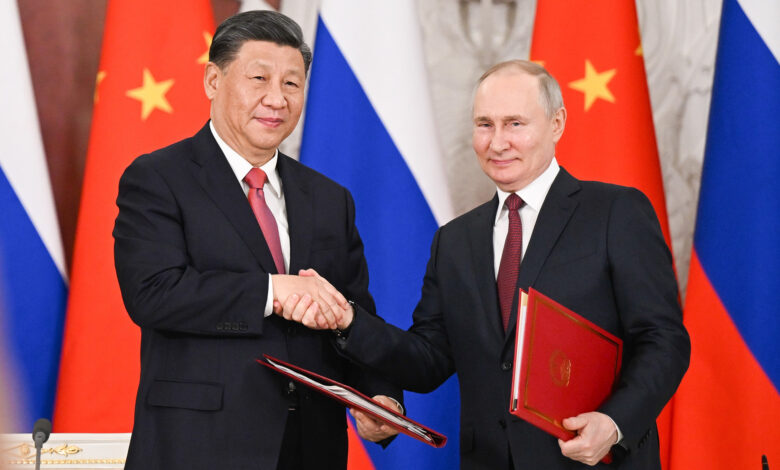
It was a bold claim, but as it turned out, not entirely without merit. The complex automated missile system had suffered minimal damage – possibly from falling debris —- but was not destroyed and remained functional, US officials told CNN.
Speculation that day nevertheless raised concerns that Kyiv’s increasingly near-invincible missile shield, much of it gifted by NATO partners, might now have vulnerable holes Russia would exploit.
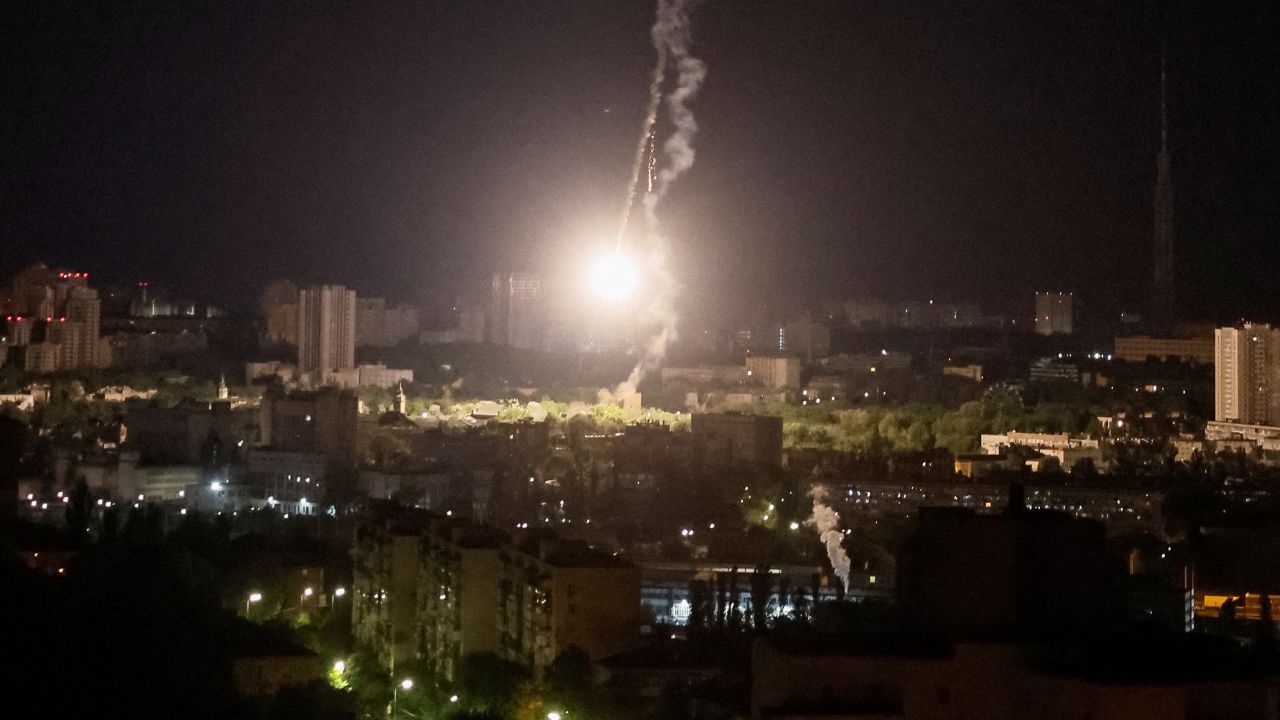
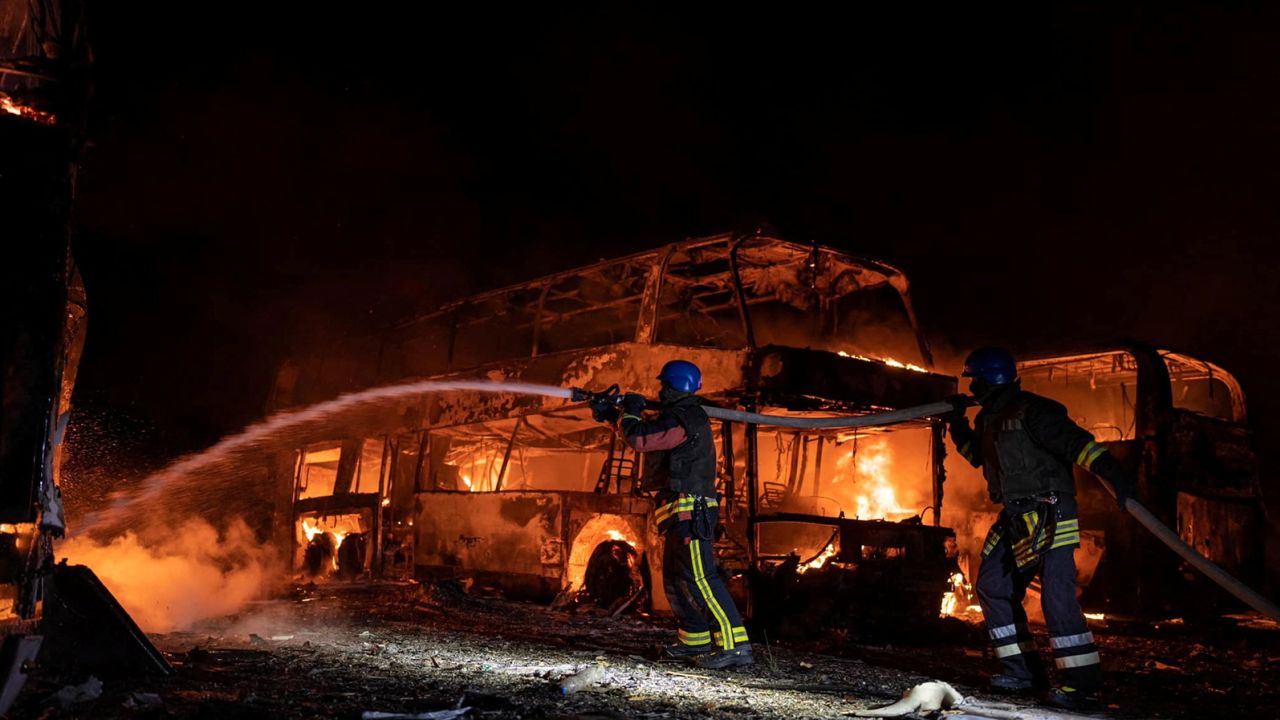
The following night, however, the skies over the capital were quiet. The all-too-familiar and unnerving sound of intercept rockets launching at the incoming deadly payloads didn’t happen. President Xi’s envoy, Li Hui, was spending the night there on a pre-planned, publicly announced visit. A missile that disturbed his peace or, worse, hit him could have changed the course of the war.
But Putin needed metaphorical blood on Volodymyr Zelensky’s nose while Ukrainian officials met Li. He wants to persuade the one world leader who can tip the scales in his stalled fight with Ukraine that he can win, and that his offensive is worthy of military support.
Nothing would have spoken louder of Moscow’s prestige than for its much vaunted – and expensive – hypersonic missile the Kinzhal to have won a duel with American Patriots.
Flying at up to 10 times the speed of sound, the six hypersonic Kinzhal missiles he fired that night cost a total of $60 million. The nine cruise missiles fired from his Black Sea fleet almost doubled the bill – and that’s before adding in the cost of the Iskander and S400 missiles also part of that night’s onslaught.
Ankara on the diplomatic fence
Xi isn’t the only leader with skin in the Ukraine war that Putin appears to be trying to sway his way right now.
The mercurial Turkish leader Recep Tayyip Erdogan took a phone call from Putin the same day Li left Kyiv. Within hours of the call, months of wrangling with Moscow over the “Black Sea Grain Deal” had been laid to rest.
The UN-brokered deal ensuring Ukraine can get its grain to world markets – critical to food security in east Africa and other impoverished regions – was first inked last July and is renewed every few months. Each time Moscow drags its feet, grain supplies stutter and almost stall before Putin signals they can continue.
The agreement has become another attempted lever of Russian influence over Turkey. Since the war began Putin has been trying to get Erdogan off the diplomatic fence, to quit supporting both Russia and Ukraine – to whom he sends vital battlefield drones.
Late last year, Putin offered Erdogan a potentially lucrative deal to host a new Russian gas export hub to Europe, now that the Nord Stream 2 pipeline running under the Baltic Sea to Germany has been destroyed.
Erdogan is a perma-hunter, always scavenging for ways to secure his place as president, and Turkey’s leverage with international partners. Geopolitics is his trade bazaar of choice, and Putin plays on it.
Letting the Black Sea Grain deal live for another 60 days was Putin’s gift for Erdogan. He could have made it harder, and potentially more politically perilous for the Turkish leader – who faces a run-off vote in his country’s presidential elections on May 28.
Putin likely calculated he had no need to commit to the deal until after the first round of the Turkish elections last week. Its outcome appears to signal Erdogan will likely win the run-off, making the grain deal a useful diplomatic investment for Putin.
There is of course no guarantee that Erdogan will win. There is no guarantee either that Xi cares about Putin’s missile salvo targeting Kyiv’s Patriot missile batteries either, but he will have been paying attention.
A costly military gambit
A gold standard in protection, Patriots are shipped all over the world to America’s allies; they are both a signal of political support and an act of real-time military defense – a powerful symbol of collective safety.
As Xi mulls his growing tensions with the US and a possible confrontation over the disputed island of Taiwan, the war in Ukraine is providing an object lesson on whose weapons are best, what works and where America’s weak spots are.
While Putin’s real war strategy – beyond trying to bludgeon 40 million Ukrainians into submission – is hard to fathom, he certainly sets high value in his relationship with Xi.
It was Xi he visited on the eve of his unlawful, unjustified invasion of Ukraine last year. It was Xi who came to Moscow and spoke of a peace deal that never acknowledged Russia’s trampling of Ukraine’s sovereignty and international law. Nor for that matter did Xi mention the moral depravity of Putin’s troops and the war crimes both they and the Kremlin have committed.
In short, from Putin’s perspective, Xi is the closest thing to a powerful ally that he has at the moment – but he would be a whole lot more useful if he believed Moscow could win the war. Smashing Kyiv’s Patriot on the eve of the Chinese envoy’s visit would have been a sign that Russia’s military muscle has not been entirely wasted on the battlefield and that Putin has a few punches left in him.
Kyiv meanwhile believes it also has good reason to court Li. Zelensky’s government thinks Xi does listen to its side of the war story, which it sees as fundamental to undermining Putin’s victimhood narrative.
At the United Nations in New York on the eve of the war’s first anniversary, Ukraine garnered 141 votes in favor of its motion demanding Russia leave its territory. The Chinese didn’t publicize Xi’s 12-point peace plan until the following day. Ukraine views that as respectful, indicating dialogue is worthwhile.
Despite Putin’s shots at taking out the Patriots, Li’s visit doesn’t appear to have changed that view. Both Beijing and Kyiv – huge differences notwithstanding – are still speaking about the “constructive” role China can play. That’s certainly not the return on investment the Kremlin would have been hoping for.

